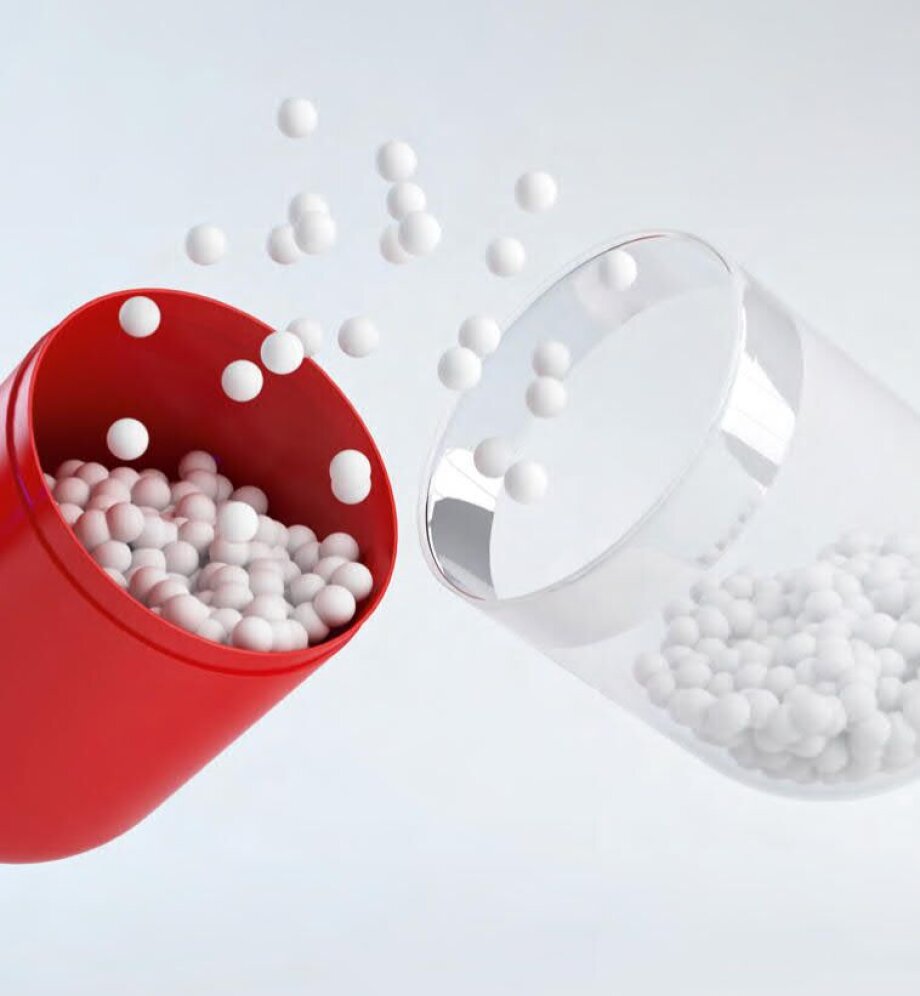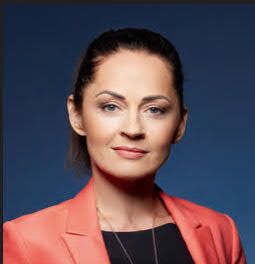Deep Impact
The Covid-19 pandemic has impacted the stability of many industries, including Pharma, emphasizes Paulina Romaniszyn who heads the Polish arm of the German pharmaceutical giant Stada INTERVIEW BY BEATA SOCHA

The Covid-19 pandemic has impacted the stability of many industries, including Pharma, emphasizes Paulina Romaniszyn who heads the Polish arm of the German pharmaceutical giant Stada INTERVIEW BY BEATA SOCHA

WBJ: Many patients across the country are facing increasing difficulties finding the medication they need, particularly for chronic conditions. In what ways has the pandemic impacted the pharma business?
Paulina Romaniszyn: The coronavirus pandemic has changed and continues to change our reality, forcing us to adapt to the new situation. From what we’ve seen so far, we can distinguish three stages of how the pandemic is affecting the pharmaceutical industry. In March, at the beginning of the pandemic, we noticed an increased turnover in Polish pharmacies and sales growth of 35 percent year-on-year. In the second phase, from April, the sector recorded major losses of some 50 percent compared to the beginning of the year. The decline was caused by patients refraining from visiting pharmacies and clinics in fear of contracting the virus, as well as due to shortages in the supply chain. The latter translated into a shortage of medication. When borders were closed and all transport of medicinal products was halted, access to medications was limited. Even access to active substances (active pharmaceutical ingredients or API) necessary to produce drugs was more difficult, which led to longer production times.
Patients stayed at home more and consulted their doctors less. This has forced the industry to find other ways to reach their customers, by moving from offline to online. The areas where no losses were recorded include oncology, psychiatry, and neurology, as well as pain medications. Paradoxically, the largest losses were seen in meds used for upper respiratory system infections, antibiotics, as well as in cardiology and diabetology. This could be caused by suspending planned visits and because patients, fearing to go to the doctor, did not treat their conditions with medication. The third stage, which started in August, is again reporting growth. Patients have been going to their doctors more often and to pharmacies as well.
How has the pandemic affected STADA?
Despite economic instability, STADA recorded significantly smaller losses, compared to the entire pharma sector. Our flagship products are pain medications, such as Tramal, Transtec, and Zaldiar. Besides, we have a strong presence in the OTC market, including our core products ITAMI diclofenac patches and Nizoral as well as a portfolio we acquired from GSK, Cholinex, and Orofar.
Maintaining the company’s strong position has been the product of intensifying our digital marketing efforts, finding new ways of reaching clients and the great dedication of our team. We made sure to keep patients well-supplied, we fast-tracked our supply chain in order to ensure that our products reach Poland in time. We are now seeing rapid sales growth. In September, it stood at 18 percent compared to August.
Has the pandemic taught us anything? One of the questions that has been raised is whether the manufacturing of active substances should be developed within the country to ensure stability during lockdowns. Would you agree with this point of view?
The pandemic has definitely taught us humility. It has made us aware that some things are simply out of our control, even for a Polish or international pharmaceutical company. We should definitely expand our production capacity within the country, particularly given that only 30 percent of all drugs we sell in Poland are produced domestically. However, I also believe that we need to be open to international investors. We should be looking at promising areas such as biosimilar drugs, as well as new technologies in medical devices. Foreign investors often offer new solutions at very accessible, European prices.
How quickly do you think we can expect Covid vaccines to be distributed in Poland?
There are hundreds of pharmaceutical and biotechnological companies working on coronavirus vaccines. According to WHO, there could be as many as 33 potential vaccines, which are in clinical trials now. In Europe, the EU has devoted significant resources to vaccine research. According to a declaration from EU members, €2.7bn has been made available to ensure an effective vaccine is created as quickly as possible. We all hope to see the first patients vaccinated soon, however, no one can tell when it might be commercially available. The most optimistic scenarios claim a Covid vaccine could be available in early 2021.
What do you think the pharmaceutical market needs right now?
Currently, the biggest priorities are a cohesive pricing policy, more openness to innovation from healthcare policymakers, as well as subsidies for new therapies, particularly in oncology. It is also crucial to recognize the value of Polish employees across the entire pharmaceutical industry.
Last year STADA took over Walmark, this year it has acquired many known brands, such as Cholinex, Orofar and Venoruton. What are the company’s growth plans?
Our goal is achieving double-digit growth, by developing both the OTC drugs segment as well as therapeutic programs for patients. We also want to expand our generic drugs segment by revising our current portfolio, as well as venture into new areas of therapeutics. Through acquisitions as well as organic growth, we aim to become of the top ten pharmaceutical companies in Poland over the next five years.
What are your priorities as the new general manager of STADA?
Over the course of 23 years in the pharmaceutical business, I have learned many things, but most importantly that people are the most valuable asset of any company. Immediately after taking the position in STADA, I realized how dedicated my team is. Our motto is ONE STADA and you can feel this philosophy at work every day. Our team is both committed and also highly creative. By using my knowledge and experience, I will focus on building our drug portfolio and increasing growth in specialist and OTC medications. My biggest priorities are company profitability, expanding our portfolio in new areas of therapeutics, optimizing costs, organic growth and acquisitions. I want to focus on making the company highly profitable, but also on a strategic view – the directions in which the company could develop. Sometimes it is worthwhile to stop for a moment and look at what is happening in the pharmaceutical market from a larger perspective.
 PAULINA ROMANISZYN
PAULINA ROMANISZYN
Country head and general manager of the Polish branch of STADA Arzneimittel AG – a pharmaceutical company based in Bad Vilbel, Germany which specializes in the production of generic and over-the-counter drugs.